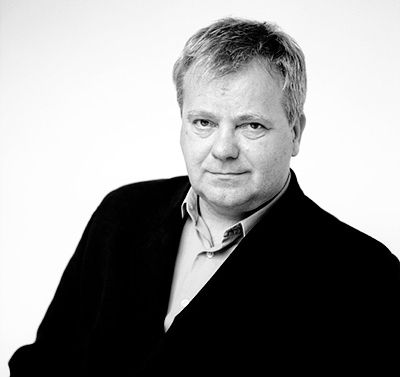The message simply listed for the staff at the University of Karlsruhe the information they’d need to fulfill their contract with the U.S.-based Computer Science Network (CSNET). It was an anticlimactic culmination of years of work by Werner Zorn, who headed the informatics computing center at U of K.
“Of course, you’re happy for a minute,” he said recently, recalling his reaction to that momentous email. “But then a minute later you’re asking yourself, ‘What’s next?’” For Zorn, the next task was as mundane as the email itself: Inform the dean and prepare a press release.

The road to the first email to Germany began in California. In 1981 the Stanford Research Institute had produced for the German Ministry for Research and Technology (BMFT) a status report on computer networking in the U.S. Having been invited to participate in the intended federal project “German Research Network” (DFN), Zorn read the report with great interest. Among all the different networks of that day, such as ARPAnet, Usenet, and more, one stood out for Zorn, as a professor of computer science: the brand-new Computer Science Network (CSNET). He believed that CSNET had the greatest possibilities, but no one in Germany – not even Zorn himself – could foresee that CSNET would become the most important preliminary infrastructure for the migration towards the Internet.
But Zorn had the right instinct, when he proposed in November 1982 to the Ministry BMFT, to set up a German CSNET project named “Interconnection of Networks.” “The intended interconnection between DFN and CSNET will all its member institutions seems to have great importance for DFN, far beyond computer science,” said Zorn. The DFN’s goal was to connect German universities. Zorn’s goal was to go beyond that and connect the DFN internationally through a combined CSNET/OSI-gateway. He assembled a research team for this purpose, but because of the preference for OSI on the part of federal politicians, it took about two years and a great deal of persistence until finally that first, famous email arrived in Karlsruhe.
He persevered successfully in another matter, as well. There was in Europe and especially in Germany at that time a great, ongoing conflict between the supporters of the Transfer Control Protocol/Internet Protocol (TCP/IP), which was to become the underlying Internet architecture, and those of the ISO/OSI protocols from the International Organization for Standardization. Zorn, who had early on been convinced of the superiority of TCP/IP, was involved in the nearly decade-long battle. The Open Systems Interconnection (OSI) protocol had many ardent proponents throughout Germany and the rest of Europe.
“They were almost like religious fanatics,” he said of some of the partisans. Zorn, on the side of TCP/IP, says, “I wasn’t anti-OSI; I was just service –oriented and wanted to be as flexible as possible.”
By 1989, it was clear that TCP/IP was going to be the standard. “I was lucky that TCP/IP turned out to be the right way to go,” he says. “And the honor of being in the Hall of Fame is a healing of my wounds from those battles.”
Zorn’s work in other areas continued while his battle for the Internet in Germany was being waged.
Three years after he brought email to Germany, Zorn’s research team went on to produce an equally amazing feat: a CSNET connection to China.
“The conflict between democracy and Communism didn’t prevent us from trying to open up lines of communication,” Zorn says. “At a computer conference in 1983 in Beijing, I was challenged to try to connect to China. Near the end of the decade, the atmosphere was much more positive for communication between China and the outside world.”
In that atmosphere, Zorn met Professor Wang YunFeng from Beijing Technical University, who had studied during World War II in Berlin. They became friends, and that’s why the first CSNET email to emanate from China, in 1987, was written in both German and English. Unlike the first email to arrive in Germany, its content was anything but ordinary: “Across the Great Wall, we can reach every corner in the world.”
In 1989 Zorn founded Xlink, an Internet Service Provider that offered one of the first TCP/IP connections from Germany to the NSFNET backbone in U.S. In 1989, it began offering connectivity to nine universities in the southwest of Germany, as well as to first commercial customers like BASF. In the 1990s, Xlink disappeared when it was acquired by Qwest Communications International.
Xlink was a founding member of RIPE, (the European IP Networks), which provides the administrative and technical coordination necessary to maintain and develop the Internet in Europe.
“Before RIPE,” Zorn says, “everyone had to contact [Internet Hall of Famer] Jon Postel to get an Internet address. RIPE made the Internet much more efficient in Europe.”
For his work in facilitating email and planting the seeds of the Internet in Germany, Zorn was inducted into the Internet Hall of Fame on Aug. 3, 2013 – precisely 29 years after the arrival of a very ordinary email.
Written by Internet Hall of Fame editorial staff